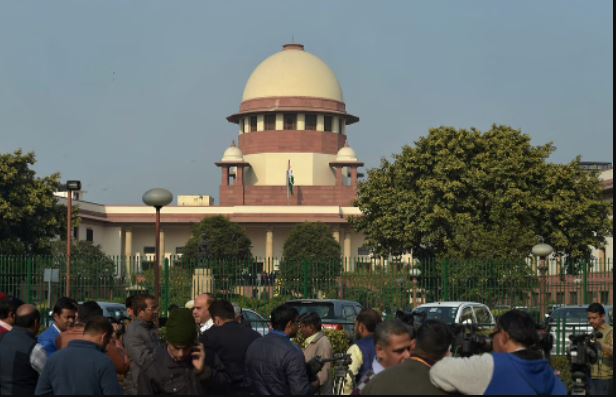
Can an employee be fired if he comes to know about the registration of an FIR while on the job? An increment given to an employee after his retirement can be recovered on the ground that it was given to him by mistake. A big decision has been given by the Supreme Court in this regard.
In the last two days, two major decisions came from the Supreme Court , which is related to the rights of the employees . There are many employees who keep making rounds of the court in such cases.
The Supreme Court on Wednesday said that suppression of information, false information and no information about FIR in any case does not mean that the employer can arbitrarily dismiss the employee.
At the same time, in another case a day ago, the Supreme Court said that if additional payment or increment is made to an employee by mistake, then recovery cannot be made from him after his retirement on the ground that it was due to some mistake. What are the two decisions of the Supreme Court and what will be its effect.
When the matter of FIR came to know during training,
a petition filed by Pawan Kumar was heard in the Supreme Court. Pawan was selected for the post of constable in Railway Protection Force (RPF). When Pawan was in training, he was removed by an order on the ground that the candidate did not disclose that an FIR was registered against him. The Supreme Court said that a person who has suppressed information or made a false declaration has no right to seek his retention in service, but at least he should not be treated arbitrarily.
The Supreme Court held that at the time of verification form filled by the appellant, criminal case was already registered against him, the complainant filed his affidavit that the complaint on which the FIR was registered was due to misunderstanding. The bench said that the order of removal from service is not appropriate and the subsequent decision passed by the Division Bench of Delhi High Court is not correct and is liable to be set aside.
After 24 years, what is the meaning of notice to the employee, the
Supreme Court on Monday ruled in the case of a teacher from Kerala. The case was that the teacher took study leave in the year 1973 but the period of that leave was not considered while giving him the increment. After 24 years, notice was issued to him in 1997 and recovery proceedings were initiated against him after his retirement in 1999.
The teachers went to the High Court against this but did not get relief, after that they reached the Supreme Court. Referring to its earlier judgments, the Supreme Court said that a government servant, especially one who is at the bottom of the service, shall spend whatever amount he receives, for the maintenance of his family.
But where the employee is aware that the payment received is more than the amount due or wrong payment has been made or where the wrong payment is detected early, the court will not grant relief against recovery.
A bench of Justices S Abdul Nazeer and Vikram Nath ruled in favor of a Kerala government teacher against whom recovery proceedings were initiated for wrongful payment of increment by the state. The Supreme Court ended his 20-year legal battle, he lost the case in the Kerala High Court.





